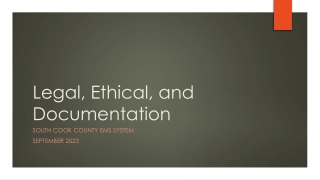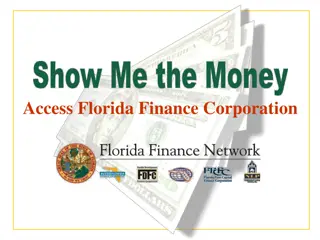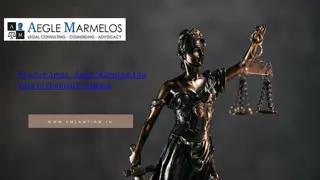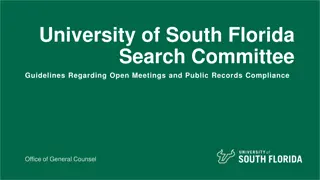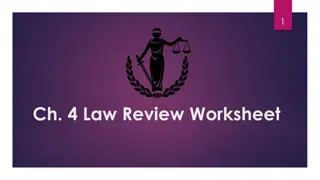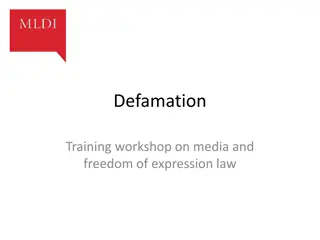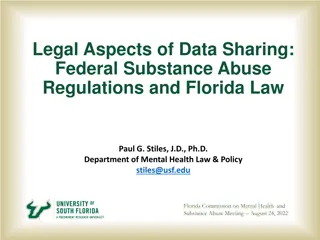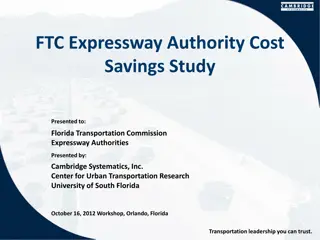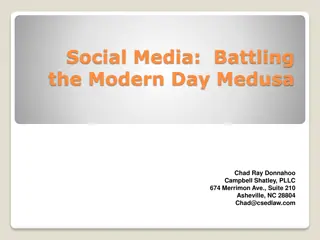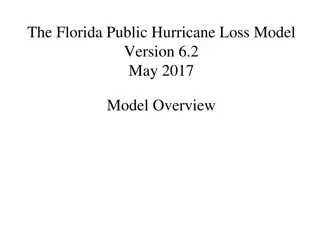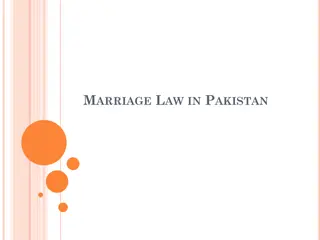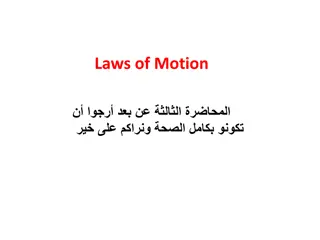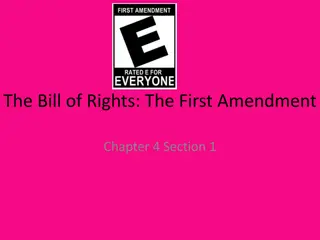Understanding Libel Laws in Florida
Explore the definition of libel, how it pertains to publication of false statements, and the importance of truth as a defense against defamation. Learn about Florida jury instructions, the impact of literally true statements, and the complexities of proving the truth in a legal setting.
Download Presentation

Please find below an Image/Link to download the presentation.
The content on the website is provided AS IS for your information and personal use only. It may not be sold, licensed, or shared on other websites without obtaining consent from the author. Download presentation by click this link. If you encounter any issues during the download, it is possible that the publisher has removed the file from their server.
E N D
Presentation Transcript
Libel David M. Snyder David M. Snyder P.A. 813-258-4501 www.dms-law.com
Libel Sticks and stones can break your bones, but words can never hurt you. Ah, if only .
Libel: An Oversimplified Definition Publication of a false statement of fact that seriously harms someone s reputation
Libel: Publication of a false statement of fact that seriously harms someone s reputation
Publication: broadly defined Articles Headlines Photo captions Blogs Ads Cartoons Freelance materials, guest columns, letters to the editor, quotes Promotional material
Libel: Publication of a false statement of fact that seriously harms someone s reputation
Libel: Publication of a false statement of fact that seriously harms someone s reputation
Florida Jury instructions: A statement is in some significant respect false if its substance or gist conveys a materially different meaning than the truth would have conveyed. In making this determination, you should consider the context in which the statement is made and disregard any minor inaccuracies that do not affect the substance of the statement.
. . .[L]iterally true statements can be defamatory where they create a false impression. -Jews for Jesus, Inc. v. Rapp, Florida Supreme Court (2006)
Truth: An Absolute Defense, However:
So, the Catch is: Knowing something is true, proving it s true, and then convincing a judge or jury it s true are different things.
Libel: Publication of a false statement of fact that seriously harms someone s reputation
Opinion Bill Clinton is the worst president in United States history. So subjective it cannot be proved true or false. Photo caption: Welcome to Our Hillbilly Hellhole. complete fact basis for opinion revealed in photo.
Libel: Publication of a false statement of fact that seriously harms someone s reputation
Red Flag Statements Accusations of illegal conduct or involvement with criminal justice system Sexual misconduct Associated with loathsome diseases Lying Unfit for business Academic problems Racial/religious/ethnic bigotry Financial instability; lack of creditworthiness
Libel: Publication of a false statement of fact that seriously harms someone s reputation
Fault Required The First Amendment requires that in order for media defendants to be held responsible for libel, the person suing must show at a minimum that the reporter/editor acted unreasonably
The Lesson: If you always do what a reasonable reporter should do (and don t do what a reasonable reporter wouldn t do), you will never be successfully sued for libel
Acting Reasonably Use trustworthy sources in quality and number Evaluate your sources Do not overstate or have blind faith in their credibility Take accurate notes (kept or destroyed on a consistent basis) Documents, documents, documents Report don t sell Talk to all sides including the subject Be open-minded Do the work required or don t do the story Be rigorous in your choice of language Never publish a story if you doubt its truth


